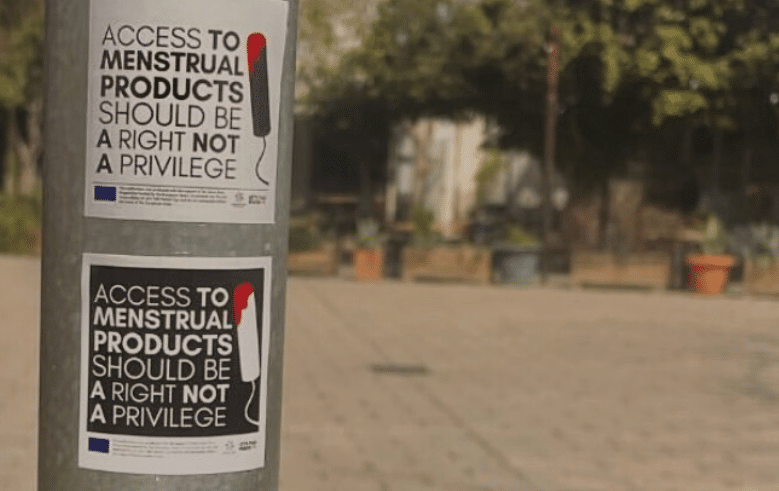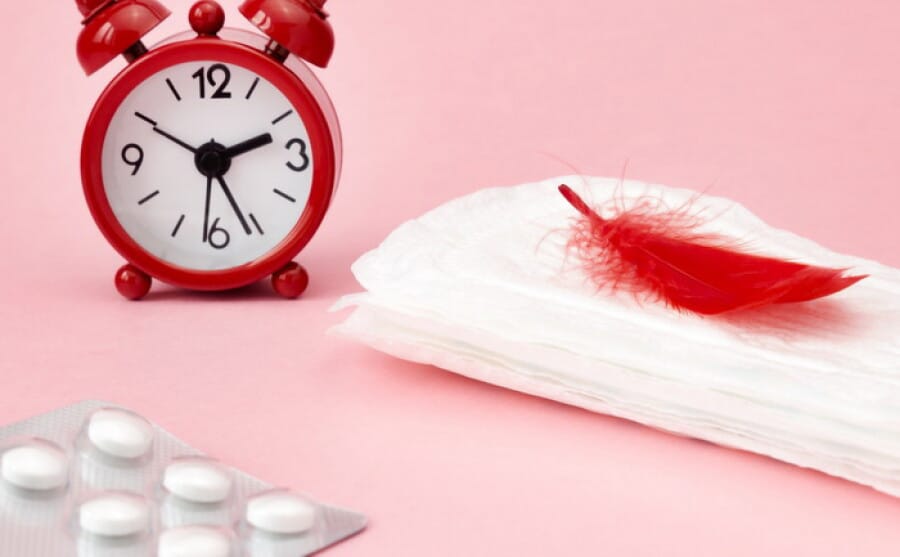‘You could be the richest person on the island and still experience period poverty!’ ALIX NORMAN finds out why and how the subject remains very much taboo on the island
Want to get a Bachelors, a luxury holiday in Bali, or a decent car for free? The answer’s simple: just stop using period products!
Okay, it’s not quite that easy. Period products are a necessity – half the world can’t live without them for 40 years of their lives. So why, asks a new local initiative, aren’t they free? And why aren’t we talking more openly about something that affects so many of us in so many ways?
Financially speaking, a woman will spend upwards of €27,000 on period products in her lifetime. And that’s even before you consider pain medication (hello ibuprofen!), birth control, heating pads, and extra laundry. Throw in loss of income (on average, women lose 9 days of productivity per year thanks to menstrual symptoms, according to the British Medical Journal), and you’re looking at a massive financial disadvantage for half the population. Plus, there’s the physical and emotional toll – if you’ve never rolled around on the floor with cramps or burst into tears at the sight of a wilting plant, then you don’t know the true impact of fluctuating hormones!
But here’s the thing. Even if you’re on a decent salary and have access to period products, you can still experience period poverty. Defined as ‘A lack of access to menstrual products, washing facilities, waste management, education, or a combination of these’, period poverty can affect anyone. Yes, even in Cyprus.
Many refugees, migrants and members of marginalised communities such as the LGBTQI+ community simply don’t have the wherewithal to get the tampons, pads, or cups they need. But the lack of education is also a huge factor in local period poverty.
“You could be the richest person on the island and still experience period poverty – because you lack period education,” says Yassin Chagh. “Did you know the Cyprus school system allows for just one lesson on periods, and that boys – the boys who will grow up to have wives, daughters, and granddaughters of their own – are removed from the class? Or that mothers still discourage young local women from saying they have their periods with a slap on the cheeks?!”
As the founder of Let’s Talk Period Cyprus, an initiative that aims to normalise discussing menstruation and help those who suffer period poverty, 21-year-old Yassin has certainly heard some wild and wonderful stories. But the facts, he says, are even more appalling.
“To date, there have been no in-depth studies into period education or poverty in Cyprus. So we conducted our own online surveys. Almost half of respondents didn’t know what caused their own period pain. 69 per cent didn’t know the difference between PMDD and PMS. And a staggering 83 per cent told us they were entirely unprepared for their first period.
“This is in a developed nation, a member of Europe!” he exclaims. “The necessary education, resources, and access to either products or information simply isn’t there – not in school, not at home. I think that tells us we really do need to talk about periods!
“And not just in Cyprus,” he continues. “I grew up in Morocco, and always thought the conservative attitude to menstruation was merely cultural. But when I moved to Cyprus, I saw the same thing: periods are swept under the carpet, branded ‘shameful’ or ‘unclean’; a taboo topic. You might go home to a partner and tell them you have your period, but it’s not something openly discussed with colleagues. Instead, in school or at work, most women will say ‘I’m ill’ or ‘I’m not feeling well today’.”
This just perpetuates the stigma, says Yassin. “In fact, that’s why I began Let’s Talk Period Cyprus. I was at a local festival when I saw a woman take out a pad and hide it in her pocket. The furtiveness surprised me; I thought I’d left such conservative attitudes behind in Morocco. But when I asked my female friends, friends who hailed from Portugal, Spain, Italy, the Netherlands and Cyprus, I realised such attitudes were universal.”
As an IGLYO board member, inter-racism task force coordinator, and advocate for period equity, Yassin saw it as his duty to open the conversation on periods. “It’s such a natural process, so normal. So why isn’t it being talked about? I went home from the festival, and spent days asking everyone I knew for their views. At first, most people thought it was really weird,” he laughs. “After all, I’m male; I don’t menstruate! But once they understood the bigger purpose, it was like a floodgate opened…”

An awareness capaign via stickers in the streets of the streets
Just two weeks later, in May 2022, Let’s Talk Period Cyprus was launched. Today, with funding from the EU’s Grow Civic Support Program and Women on Top, the initiative has grown to a team of five volunteers, which includes medical and biological researcher and artist, Marisa; psychologist and gender studies academician, Kubra; Ioanna, a licensed counselling psychologist and researcher; and Evangelia, an electrical and biomedical engineer.
Together, the five have already hosted discussions, workshops, screenings, and open mic nights in collaboration with organisations such as Women of Cyprus, Conversation Café, Kontes Foustes, on topics including period products, sustainable alternatives, reproductive rights and menstruation. And, most notably, the initiative is combating local period product poverty with donation boxes across Nicosia.
“These 10 boxes can be filled with donations of period products – of pads, tampons, or any items that will help,” explains Yassin. “Whatever we collect then goes straight to Refugee Rights Association and Generation for Change, who distribute the products to those most in need.
“Access to both period education and products is a basic human right,” he asserts. “Cyprus may have lifted VAT on period products until the end of 2023. But other nations – such as Scotland, New Zealand, and Kenya – are now providing these basic necessities for free.
“Is it right that half the population is bearing a cost equivalent to a deposit on a property?” he asks. “And is it right that menstruators across the island are still being stigmatised for a biological process that is entirely natural, entirely normal, and has existed since time began? I think,” he concludes, “it’s time that we all, no matter our background or gender, said ‘Let’s Talk Period Cyprus!’”
For more information, visit the Instagram account @letstalkperiodcyp or the Facebook page ‘Let’s Talk Period Cyp’
You can also help fund this volunteer initiative through their gofundme page







Click here to change your cookie preferences